Where is it All Made?
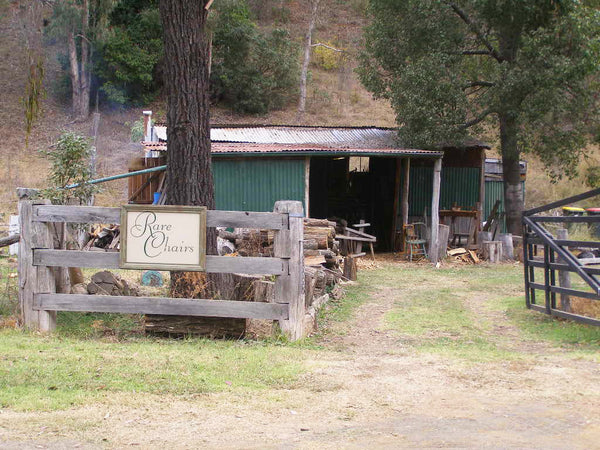
The Rare Chairs shed, Moonan Flat.
(Last Updated: Dec 05, 2023) I am often asked by customers in the gallery “Where is all this made?” or “Do you make all this yourself?” The short answer is no, we are primarily on the sourcing, designing and developing side of things, though that said, Gregory can turn out a pretty nice chair. But to better show where and how it is all made, I thought it was time to show some real woodworkers' sheds and workshops and a few of the talented craftsmen who extract, with the help of a few good machines, from the sawdust, wood shavings and piles of timber, the beautiful, hand-crafted woodwork that you see on our website.
The Unplugged Workshop
The ‘Rare Chairs’ workshop in Moonan Flats near Scone, run by Howard Archbold is where you can learn to make a chair from scratch without power tools in the time-honoured pre-industrial method.
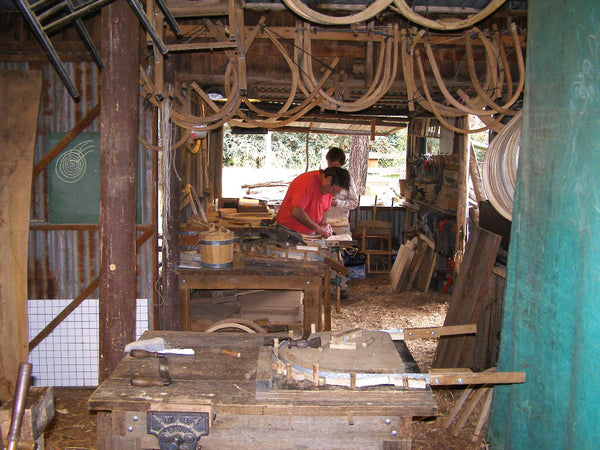
Inside the Rare Chairs shed.
Using tools like treadle lathes, spokeshaves (for the spokes of the chair) hand planes and hand drills, it is amazing to watch a chair appear from slabs of wood and some branches.
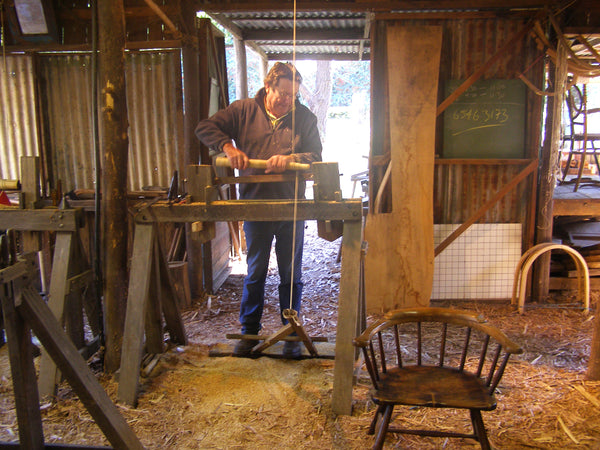
Gregory on the treadle lathe at Rare Chairs
All furniture up to the late 1800s was made using hand tools and first became mechanised with the use of steam-powered saws. One of the first mass-produced items was the Singer sewing machine cabinet but most furniture was still made using traditional cabinetry with hand carving, dovetail and mortise and tenon joinery cut by hand.
The Typical One Man Shed/Garage workshop
These one-man-band set-ups are probably most representative of the workshops that produce our varied range of homewares and kitchenware. These craftsmen have set their workshops up in a shed or garage and they tend to specialise in turning or carving or band saw work and the like. In these workshops, you will see machines such as various-sized lathes for turning, linishers for sanding, arbortechs for wood carving, band saws and perhaps table saws and lots of sawdust and wood shavings, a feature common to all woodworking along with the lovely smell of freshly cut wood.
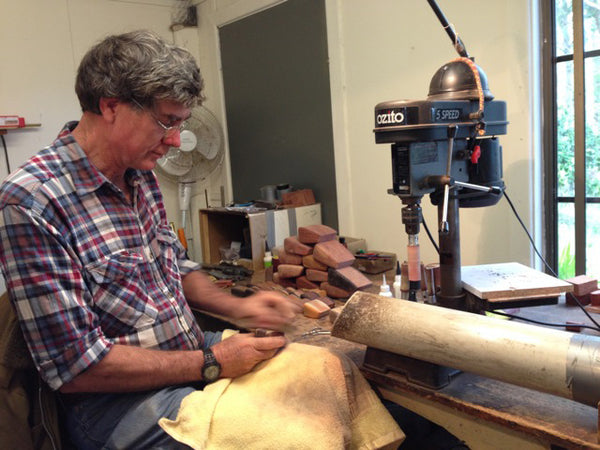
John Tudehope making ‘Wobbles’.
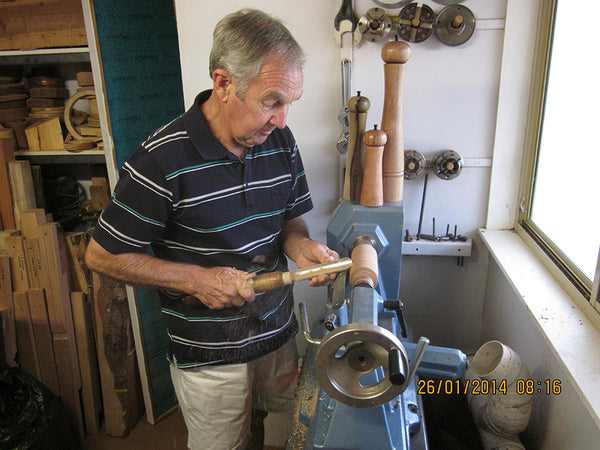
Trevor Short on his lathe making Orb mills.
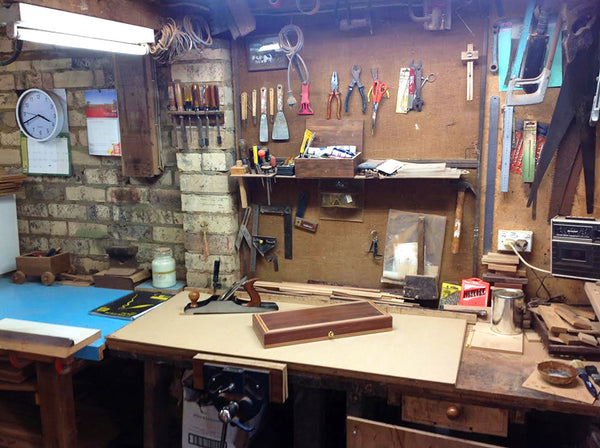
Garrick Blue’s workshop with box in progress.
The Bigger, Purpose-Built Workshop
Furniture makers naturally need larger workshops with more and varied machines in them plus room to store large slabs of timber. Here you can see Ian Cameron’s beautiful big workshed in Northern NSW and some of his furniture-making machinery plus 3 woodworkers discussing the merits of different wood finishes – or, looking at it, they may have moved on to fishing exploits.
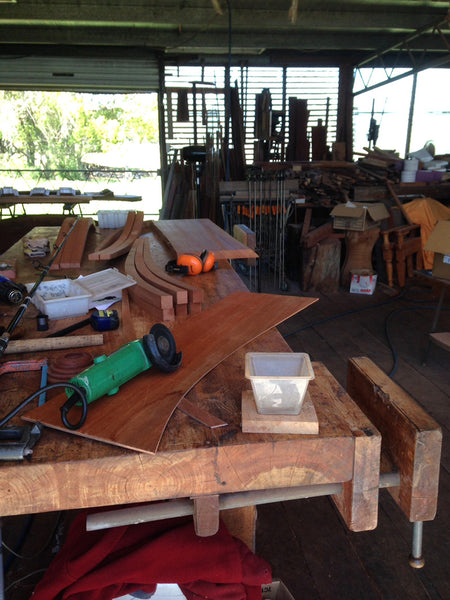
Ian Cameron’s workshop.
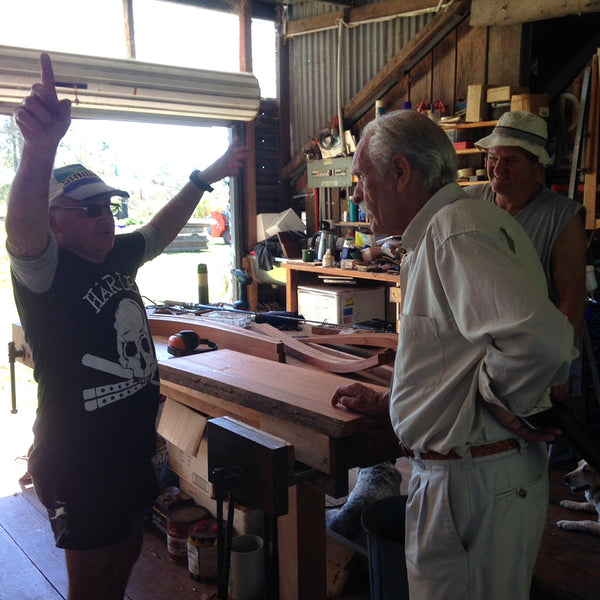
L to R: Gordon Barton, Colin Beeby, Ian Cameron.
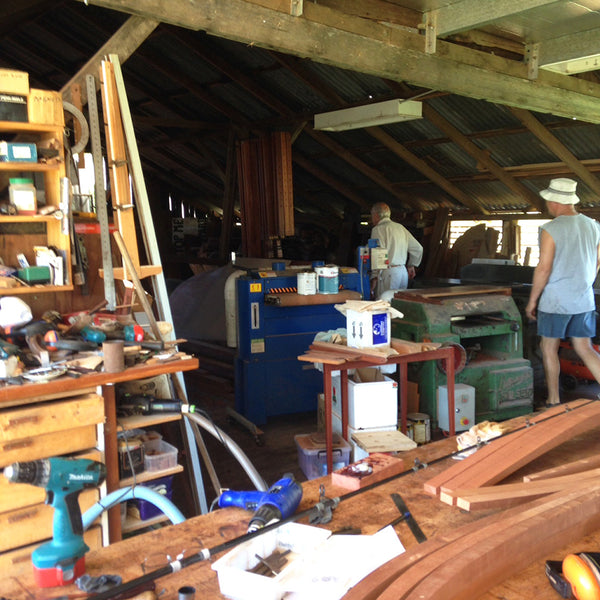
Is that a fishing rod on the workbench?
In this workshop, you will see a lot more heavy-duty machines such as linishers, sanders, thicknessers and various types of saws. plus a multitude of other handheld tools like drills and routers.
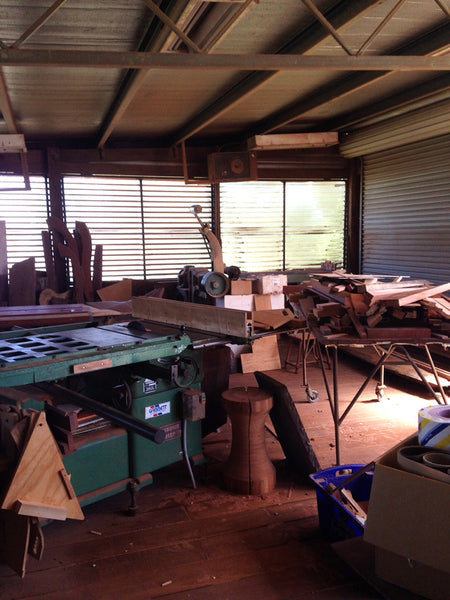
Old Wadkin’s panel saw.
Ian is also a master turner and his workshop has several sized lathes on which he can turn small and large bowls such as the turned Redgum Burl bowls on our website. He also turns interesting bollard-like shapes for use in his furniture designs.
This is About as Big as We Get
This board-making workshop is probably the biggest operation with which we deal. The Eco factory situated in Northern NSW where Camphor Laurel, the perfect kitchen board timber is plentiful, is an immaculate set-up with built-in vacuum dust extractors and state–of–the–art saws, spindle moulders and belt sanders. The showroom is fabulous with rustic slabs of timber on the ceiling and around the walls.
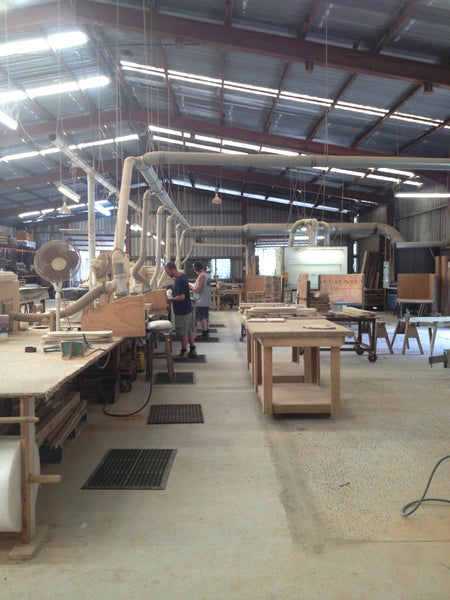
The Eco board factory.
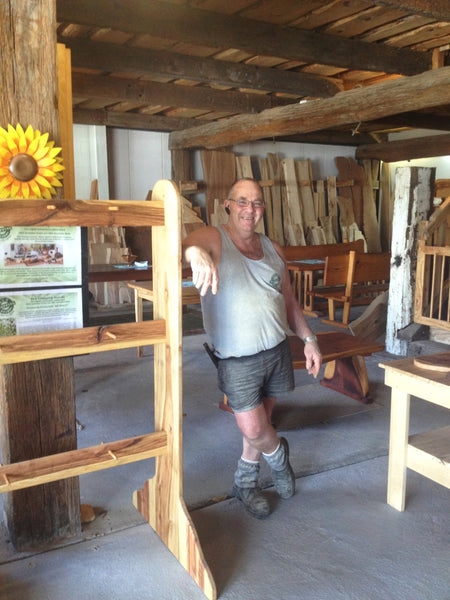
David, factory foreman.
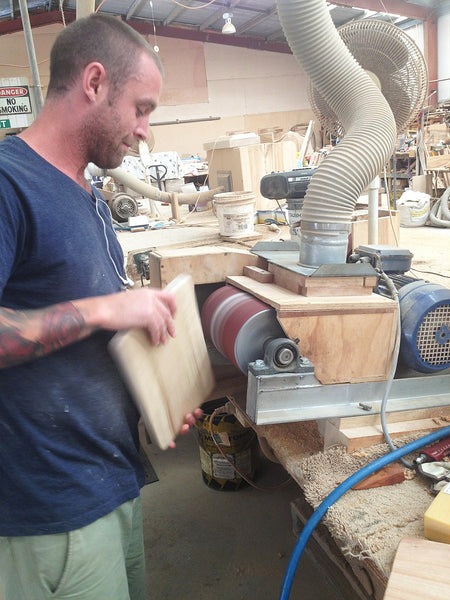
Finishing boards on the belt sander.
This was a very brief tour of only some of the workshops and sheds all over the country in which those talented craftsmen of Australia toil away to bring to you the beautiful products on our pages. We hope you find it interesting and let us know your thoughts in the comments below.







Hi, I’m trying to get in touch with Ian Cameron
Ian is an old mate of mine & we lost touch 15 years ago when I had a marriage breakdown.
Can you please forward my email to him
He can then contact me
Thanks SD 😊
Great to see – will drop in to see more.
Loved, loved, loved this! Your products are so beautiful, it is great to see behind the scenes so to speak! Sally